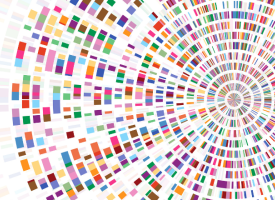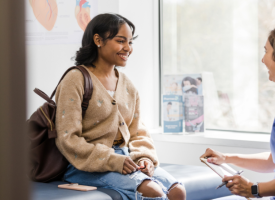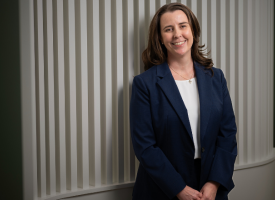Happier 2020 for hundreds thanks to organ donors
Almost 1800 Australians are looking forward to a happier and healthier New Year, due to the generosity of organ donors and their families, AMA President, Dr Tony Bartone, said today.
“As the new year begins, the AMA would like to recognise the significant altruism of every organ donor, and thank all the donor families for making such a selfless decision during a very difficult time in their lives,” Dr Bartone said.
“While we don’t have the figures for 2019 yet, we do know that, in 2018, Australia achieved its highest number of organ donors, with 554 deceased donors and 238 living donors saving or improving the lives of 1782 people – mothers, fathers, brothers, sisters, daughters, sons, and friends.
“This was a 9 per cent increase in the number of donors and a 10 per cent increase in the number of transplant recipients, compared with 2017.
“But 1400 Australians are on the transplant waiting list at any given time, and many will die before they receive an organ.
“Each and every Australian can help by registering to become an organ donor, and informing their families of their wishes.
“In Australia, families of potential donors are asked to confirm if their family member wanted to be a donor, and research has found that registration as a donor and family knowing their wishes makes a major difference to family consent rates.
“Nine out of 10 families say yes to donation when their loved one is a registered donor. Three out of four families say yes when their family member was not registered, but they knew that they wanted to be a donor.
“But only one in two families say yes when the family member was not registered and had not discussed donation with them.
“Currently, more than 275 donation specialist nurses, doctors, and support staff cover 95 hospitals across the nation, playing an integral role in increasing family consent.
“These dedicated people work with hospital critical care teams to ensure that, when appropriate, the opportunity for donation is offered to families by a trained donation specialist doctor or nurse, and provide families with high quality care during the transplant process.
“In 2018, nearly 80 per cent of Australian families agreed to donation when they were supported by a trained donation specialist nurse or doctor. This dropped to less than 50 per cent when there was no trained specialist involved.
“The AMA would like to give a special thanks to the donation staff, critical care teams, and all healthcare professionals involved in supporting organ donors and their families.
“During this holiday season, we encourage all Australians to consider registering on the Australian Organ Donor Register, and to discuss their wishes with their family members. Just go to the DonateLife website to register, and for a wide range of information.”
The DonateLife website is at https://donatelife.gov.au/
The AMA Position Statement on Organ and Tissue Donation and Transplantation 2017 can be found at https://ama.com.au/position-statement/organ-and-tissue-donation-and-transplantation-2017
Background
According to DonateLife:
- About 1400 Australians are currently waitlisted for a transplant, and a further 11,000 are on dialysis, many of whom would benefit from a kidney transplant.
- During the past decade, the number of deceased donors has more than doubled to 554 in 2018, compared with 247 in 2009.
- Only 2-3 per cent of people who die in hospital can become an organ donor, as particular circumstances need to occur for a patient to be medically suitable to donate. Of the 78,525 hospital deaths in 2018, only 1211 were identified as potential donors.
- In 2018, 1782 lives were transformed by 554 deceased and 238 living organ donors and their families.
- More than 10,500 Australians benefited from eye and tissue donation in 2018.
- 69 per cent of Australians are willing to donate their organs and/or tissue when they die, but only one in three Australians are a registered donor.
- 90 per cent of Australian families say yes to donation when their loved one is a registered donor, compared to the national consent rate of 64 per cent.
- While 71 per cent of Australians think it is important to talk about their donation intentions with their family/partner, only 51 per cent have had the discussion.
According to ShareLife, in 2017 Australia was ranked 16th in the world for organ donation rates, at 20.8 donors per million of population (DPMP). If Australia matched the top-ranked nation, Spain, with a DPMP of 47, an additional 1700 Australians could receive a transplant each year.
2 January 2019
CONTACT: John Flannery 02 6270 5477 / 0419 494 761
Maria Hawthorne 02 6270 5478 / 0427 209 753
Follow the AMA Media on Twitter: http://twitter.com/ama_media
Follow the AMA President on Twitter: http://twitter.com/amapresident
Follow Australian Medicine on Twitter: https://twitter.com/amaausmed
Like the AMA on Facebook https://www.facebook.com/AustralianMedicalAssociation



